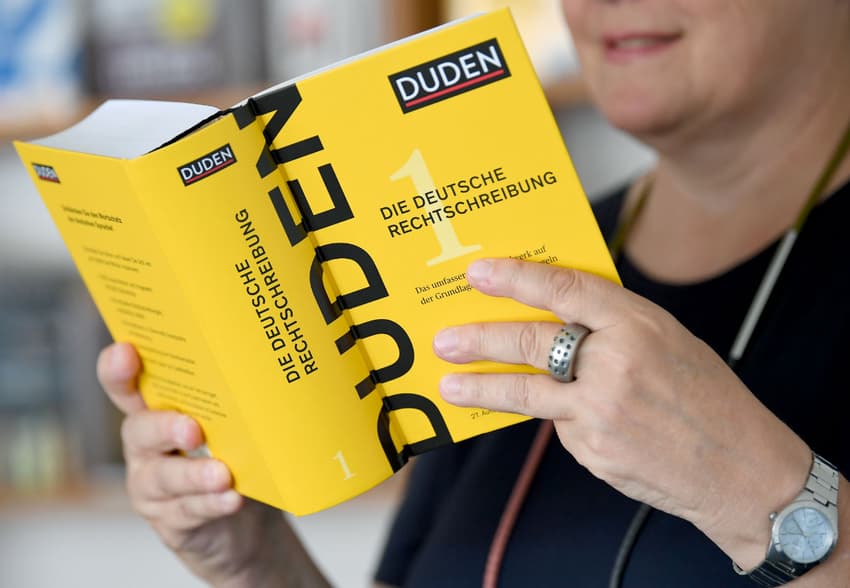Selfie, Fake News and Tablet added to German language in new dictionary

German language dictionary Duden has added 5,000 new words to its latest edition, including several English words.
Duden’s new edition to be released on Wednesday has added thousands of new words, including several words of English-language origin such as Selfie, Tablet and Fake News.
“It’s simply a fact that many things in our lives are coming from the Anglo-American area, for example when one thinks of technical developments,” said Duden’s managing editor Kathrin Kunkel-Razum.
Other words that were added reflect the current political climate, such as Flüchtlingskrise (refugee crisis) and postfaktisch (post-truth). Another addition was the German language blog favourite Kopfkino (mental cinema, or daydream), which surprisingly had not been included in the dictionary before.
The editorial team at Duden also decided for the first time to how to record all chancellors' names, for example with the new entry of Merkel, Angela under the letter M.
New words are added according to specific criteria. Words must occur frequently and in various types of text. In addition, Duden takes into consideration how to document social developments, and the fact that some users may think certain words do not actually exist unless they are in Duden.
A few words spelled in traditional German language fashion have been dropped from the latest edition. Majonäse, for example, should now be simply spelled Mayonnaise.
The new edition also involves vocabulary specific to Berliners. Among the additions are Berlin classics like the personal pronoun ick/icke (me) and Späti (a convenience store that’s open late).
Duden’s database of words has been steadily growing in the last few decades. It now contains 145,000 words, whereas the reference book’s original version in 1880 contained 27,000.
The dictionary is updated every three to five years, with the last renewed edition released in 2013.
“After this amount of time, there are enough developments in vocabulary that one would really like to depict,” said Kunkel-Razum.
READ ALSO: 10 English words you didn't know we stole from German
Comments
See Also
Duden’s new edition to be released on Wednesday has added thousands of new words, including several words of English-language origin such as Selfie, Tablet and Fake News.
“It’s simply a fact that many things in our lives are coming from the Anglo-American area, for example when one thinks of technical developments,” said Duden’s managing editor Kathrin Kunkel-Razum.
Other words that were added reflect the current political climate, such as Flüchtlingskrise (refugee crisis) and postfaktisch (post-truth). Another addition was the German language blog favourite Kopfkino (mental cinema, or daydream), which surprisingly had not been included in the dictionary before.
The editorial team at Duden also decided for the first time to how to record all chancellors' names, for example with the new entry of Merkel, Angela under the letter M.
New words are added according to specific criteria. Words must occur frequently and in various types of text. In addition, Duden takes into consideration how to document social developments, and the fact that some users may think certain words do not actually exist unless they are in Duden.
A few words spelled in traditional German language fashion have been dropped from the latest edition. Majonäse, for example, should now be simply spelled Mayonnaise.
The new edition also involves vocabulary specific to Berliners. Among the additions are Berlin classics like the personal pronoun ick/icke (me) and Späti (a convenience store that’s open late).
Duden’s database of words has been steadily growing in the last few decades. It now contains 145,000 words, whereas the reference book’s original version in 1880 contained 27,000.
The dictionary is updated every three to five years, with the last renewed edition released in 2013.
“After this amount of time, there are enough developments in vocabulary that one would really like to depict,” said Kunkel-Razum.
READ ALSO: 10 English words you didn't know we stole from German
Join the conversation in our comments section below. Share your own views and experience and if you have a question or suggestion for our journalists then email us at [email protected].
Please keep comments civil, constructive and on topic – and make sure to read our terms of use before getting involved.
Please log in here to leave a comment.